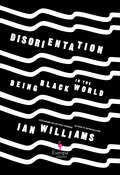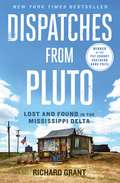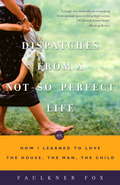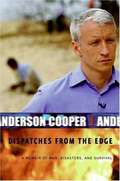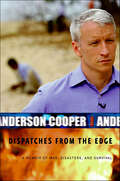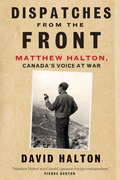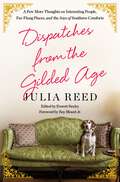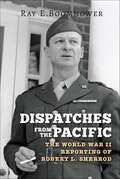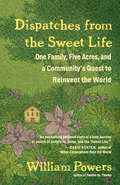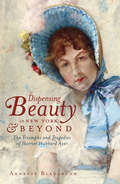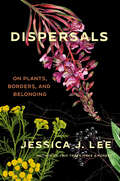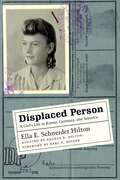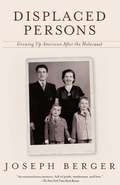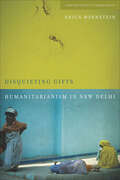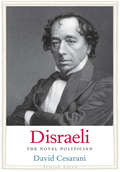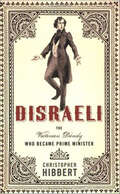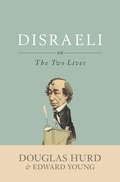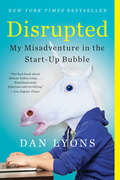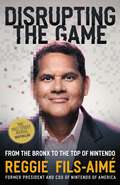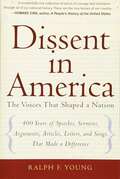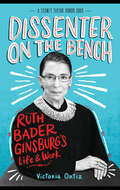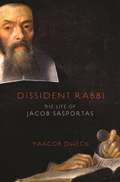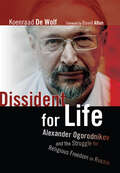- Table View
- List View
Disorientation: Being Black in the World
by Ian WilliamsA Boston Globe Best Book of 2021: “Lyrical, closely observed” essays on being Black in the US, Canada, and Trinidad, and how those experiences differed (Kirkus Reviews).Finalist for the 2021 Hilary Weston Writers’ Trust Prize for NonfictionWith that one eloquent word, disorientation, Scotiabank Giller Award winner Ian Williams captures the impact of racial encounters on racialized people—the whiplash of race that occurs while minding one’s own business. Sometimes the consequences are only irritating, but sometimes they are deadly. Spurred by the police killings and street protests of 2020, Williams offers a perspective that is distinct from that of US writers addressing similar themes. Williams has lived in Trinidad (where he was never the only Black person in the room), in Canada (where he often was), and in the United States (where as a Black man from the Caribbean, he was a different kind of “only”). He brings these formative experiences fruitfully to bear on his theme in Disorientation.Inspired by the essays of James Baldwin, in which the personal becomes the gateway to larger ideas, Williams explores such matters as the unmistakable moment when a child realizes they are Black; the ten characteristics of institutional whiteness; how friendship forms a bulwark against being a target of racism; the meaning and uses of a Black person’s smile; and blame culture—or how do we make meaningful change when no one feels responsible for the systemic structures of the past.Disorientation is a book for all readers who believe that civil conversation on even the most charged subjects is possible. Employing his wit, his empathy for all, and his vast and astonishing gift for language, Ian Williams gives readers an open, candid, and personal perspective on an undeniably important subject.“Honest, vulnerable, courageous and funny.” —Lawrence Hill, author of The Book of Negroes
Dispatches from Pluto: Lost and Found in the Mississippi Delta
by Richard GrantAdventure writer Richard Grant takes on "the most American place on Earth"--the enigmatic, beautiful, often derided Mississippi Delta.Richard Grant and his girlfriend were living in a shoebox apartment in New York City when they decided on a whim to buy an old plantation house in the Mississippi Delta. Dispatches from Pluto is their journey of discovery into this strange and wonderful American place. Imagine A Year In Provence with alligators and assassins, or Midnight in the Garden of Good and Evil with hunting scenes and swamp-to-table dining. On a remote, isolated strip of land, three miles beyond the tiny community of Pluto, Richard and his girlfriend, Mariah, embark on a new life. They learn to hunt, grow their own food, and fend off alligators, snakes, and varmints galore. They befriend an array of unforgettable local characters--blues legend T-Model Ford, cookbook maven Martha Foose, catfish farmers, eccentric millionaires, and the actor Morgan Freeman. Grant brings an adept, empathetic eye to the fascinating people he meets, capturing the rich, extraordinary culture of the Delta, while tracking its utterly bizarre and criminal extremes. Reporting from all angles as only an outsider can, Grant also delves deeply into the Delta's lingering racial tensions. He finds that de facto segregation continues. Yet even as he observes major structural problems, he encounters many close, loving, and interdependent relationships between black and white families--and good reasons for hope. Dispatches from Pluto is a book as unique as the Delta itself. It's lively, entertaining, and funny, containing a travel writer's flair for in-depth reporting alongside insightful reflections on poverty, community, and race. It's also a love story, as the nomadic Grant learns to settle down. He falls not just for his girlfriend but for the beguiling place they now call home. Mississippi, Grant concludes, is the best-kept secret in America.
Dispatches from a Not-So-Perfect Life: Or How I Learned to Love the House, the Man, the Child
by Faulkner FoxWhen Salon.com published Faulkner Fox's article on motherhood, "What I Learned from Losing My Mind," the response was so overwhelming that Salon reran the piece twice. The experience made Faulkner realize that she was not alone--that the country is full of women who are anxious and conflicted about their roles as mothers and wives. In Dispatches from a Not-So-Perfect Life, her provocative, brutally honest, and often hilarious memoir of motherhood, Faulkner explores the causes of her unhappiness, as well as the societal and cultural forces that American mothers have to contend with. From the time of her first pregnancy, Faulkner found herself--and her body--scrutinized by doctors, friends, strangers, and, perhaps most of all, herself. In addition to the significant social pressures of raising the perfect child and being the perfect mom, Faulkner also found herself increasingly incensed by the unequal distribution of household labor and infuriated by the gender inequity in both her home and others'. And though she loves her children and her husband passionately, is thankful for her bountiful middle-class life, and feels wracked with guilt for being unhappy, she just can't seem to experience the sense of satisfaction that she thought would come with the package. She's finally got it all--the husband, the house, the kids, an interesting part-time job, even a few hours a week to write--so why does she feel so conflicted? Faulkner sheds light on the fear, confusion, and isolation experienced by many new mothers, mapping the terrain of contemporary domesticity, marriage, and motherhood in a voice that is candid, irreverent, and deeply personal, while always chronicling the unparalleled joy she and other mothers take in their children.
Dispatches from the Edge: A Memoir of War, Disasters, and Survival
by Anderson CooperFew people have witnessed more scenes of chaos and conflict than Cooper, whose groundbreaking coverage on CNN has changed the way we view the news.
Dispatches from the Edge: A Memoir of War, Disasters, and Survival
by Anderson CooperOne of America’s leading reporters shares a deeply personal, extraordinarily powerful look at the most volatile crises he has witnessed around the world.A #1 New York Times BestsellerAnderson Cooper’s groundbreaking coverage on CNN has changed the way we watch the news. Few people have witnessed more scenes of chaos and conflict around the world. In this gripping, candid, and remarkably powerful memoir, he offers an unstinting, up-close view of the most harrowing crises of our time, and the profound impact they have had on his life—from the tsunami in Sri Lanka to the war in Iraq, from the starvation in Niger to the tragedy of Hurricane Katrina in New Orleans and Mississippi.Striking, heartfelt, and utterly engrossing, Dispatches from the Edge is an unforgettable story from one of America’s most trusted, fearless, and pioneering reporters.Praise for Dispatches from the Edge“A smart, soulful page-turner. . . . Cooper is a storyteller with plenty of heart.” —People“From the shores of Sri Lanka to the chaos of Hurricane Katrina, Cooper weaves his experiences at CNN into a moving memoir.” —Newsweek“His vignettes from the world’s horrscapes rise above the swagger of many journalistic memoirs because Cooper writes with competence as well as feeling.” —Washington Post Book World“Anderson Cooper gets New Orleans. . . . This is an emotional, personal reckoning with what he’s seen.” —New Orleans Times-Picayune
Dispatches from the Front
by David HaltonAs senior war correspondent for the Canadian Broadcasting Corporation during the Second World War, Matthew Halton reported from the front lines in Italy and Northwest Europe and became "the voice of Canada at war." His gripping, passionate broadcasts chronicled the victories and losses of Canadian soldiers and made him a national hero.Born in Pincher Creek, Alberta, in 1904, Halton was to achieve the fastest ever ascent in Canadian journalism. A year after joining the Toronto Daily Star as a cub reporter, he was in Berlin to write about Adolf Hitler's seizure of power and - long before most other correspondents - to begin a prophetic series of warnings about the Nazi regime. For more than two decades, he witnessed first-hand the major political and military events of the era. He covered Europe's drift to disaster, including the breakdown of the League of Nations, the Spanish Civil War, the sellout to Fascism at Munich, and the Nazi takeover of Czechoslovakia. Along the way he interviewed Franklin Delano Roosevelt, Hermann Göring, Neville Chamberlain, Charles de Gaulle, Mahatma Gandhi, and dozens of others who shaped the history of the century.In Dispatches from the Front, acclaimed former CBC correspondent David Halton, Matthew's son, also examines his father's often tumultuous personal life. He unravels the many paradoxes of his personality: the war correspondent who loathed bloodshed yet became addicted to the thrill of battle; the loner who thrived in good company; and, in some ways most puzzling of all, the womanizer with a deep and enduring love for his wife. Drawn from extensive interviews and archival research, this definitive biography is a captivating portrait of the life of one of Canada's most accomplished journalists.
Dispatches from the Gilded Age: A Few More Thoughts on Interesting People, Far-Flung Places, and the Joys of Southern Comforts
by Julia ReedDispatches from the Gilded Age is a collection of essays by Julia Reed, one of America's greatest chroniclers.In the middle of the night on March 11, 1980, the phone rang in Julia Reed’s Georgetown dorm. It was her boss at Newsweek, where she was an intern. He told her to get in her car and drive to her alma mater, the Madeira School. Her former headmistress, Jean Harris, had just shot Dr. Herman Tarnower, The Scarsdale Diet Doctor. Julia didn’t flinch. She dressed, drove to Madeira, got the story, and her first byline and the new American Gilded Age was off and running.The end of the twentieth century and the beginning of the twenty-first was a time in which the high and the low bubbled furiously together and Julia was there with her sharp eye, keen wit, and uproariously clear-eyed way of seeing the world to chronicle this truly spectacular era. Dispatches from the Gilded Age is Julia at her best as she profiles Andre Leon Talley, Sister Helen Prejean, President George and Laura Bush, Madeleine Albright, and others. Readers will travel to Africa and Cuba with Julia, dine at Le Bernardin, savor steaks at Doe’s Eat Place, consider the fashions of the day, get the recipes for her hot cheese olives and end up with the ride of their lives through Julia’s beloved South. With a foreword by Roy Blount, Jr. and edited by Julia's longtime assistant, Everett Bexley.
Dispatches from the Pacific: The World War II Reporting of Robert L. Sherrod
by Ray E. BoomhowerIn the fall of 1943, armed with only his notebooks and pencils, Time and Life correspondent Robert L. Sherrod leapt from the safety of a landing craft and waded through neck-deep water and a hail of bullets to reach the shores of the Tarawa Atoll with the US Marine Corps. Living shoulder to shoulder with the marines, Sherrod chronicled combat and the marines' day-to-day struggles as they leapfrogged across the Central Pacific, battling the Japanese on Tarawa, Saipan, Iwo Jima, and Okinawa. While the marines courageously and doggedly confronted an enemy that at times seemed invincible, those left behind on the American home front desperately scanned Sherrod's columns for news of their loved ones. Following his death in 1994, the Washington Post heralded Sherrod's reporting as "some of the most vivid accounts of men at war ever produced by an American journalist." Now, for the first time, author Ray E. Boomhower tells the story of the journalist in Dispatches from the Pacific: The World War II Reporting of Robert L. Sherrod, an intimate account of the war efforts on the Pacific front.
Dispatches from the Sweet Life: One Family, Five Acres, and a Community's Quest to Reinvent the World
by William PowersMany fantasize about dramatically changing their lives — living in accordance with their ideals rather than the exigencies of job, bills, and possessions. William Powers actually does it. In his book Twelve by Twelve, Powers lived in an off-grid tiny house in rural North Carolina. In New Slow City, he and his wife, Melissa, inhabited a Manhattan micro-apartment in search of slow in the fastest city in the world. Here, the couple, with baby in tow, search for balance, community, and happiness in a small town in Bolivia. They build an adobe house, plant a prolific orchard and organic garden, and weave their life into a community of permaculturists, bio-builders, artists, and creative businesspeople. Can this Transition Town succeed in the face of encroaching North American capitalism, and can Powers and the other settlers find the balance they’re seeking? Dispatches from the Sweet Life is compelling, sobering, thought-provoking, and, no matter the outcome, inspiring.
Dispensing Beauty in New York & Beyond: The Triumphs and Tragedies of Harriet Hubbard Ayer
by Annette Blaugrund“An excellently researched mixture of history and biography about a maverick Victorian woman who made beauty her business.” —Barbara Goldsmith, New York Times-bestselling author Harriet Hubbard Ayer moved to New York City by 1883 and established Recamier Preparations, Inc., the earliest cosmetic company owned and operated by a woman. First with her creams and balms and then with her words about women’s health and beauty, she influenced several generations of women to look and feel good about themselves. The jealous and vindictive men in her life punished her for her ambition, accomplishments and independence by attempting to steal her lucrative business and seize her children. After she successfully sued them, they had her committed to an insane asylum. Indomitable, this former Chicago socialite reinvented herself as the highest paid newspaperwoman in the United States, editing the women’s pages of Joseph Pulitzer’s New York World. Her incredible story is presented here as never before.“Ayer emerges from Dr. Blaugrund’s portrait as an innovative entrepreneur, crack reporter, and pioneer of the American feminist movement.” —Sidney Offit, author, teacher, curator emeritus of the George Polk Journalism Award of the Author’s Guild “Just when we thought there were no more original American characters, along comes Annette Blaugrund’s fine biography of the little-known feminist pioneer Harriet Hubbard Ayer—her harrowing struggles, her inspiring achievements, her unexpected triumphs. What a marvelous tale written in a riveting manner!”—William A. Johnson, professor emeritus of philosophy, Brandeis University
Dispersals: On Plants, Borders, and Belonging
by Jessica J. LeeINSTANT TORONTO STAR BESTSELLERThe prize-winning and bestselling author of Two Trees Make a Forest turns to the lives of plants entangled in our human world to explore belonging, displacement, identity, and the truths of our shared futureA seed slips beyond a garden wall. A tree is planted on a precarious border. A shrub is stolen from its culture and its land. What happens when these plants leave their original homes and put down roots elsewhere?The themes in these fourteen essays become invigorating and intimate in Lee&’s hands, centering on the lives of plants like seaweed, tangelos, and soy, and their entanglement with our human worlds. Lee explores the rich backstory of cherry trees in Berlin; a tea plant that grows in the Himalayan foothills just southwest of China; the world of algae and wakame, and the journeys they&’ve made to reach us.Each of the plants considered in this collection are somehow perceived as being &“out of place&”—weeds, samples collected through imperial science, crops introduced and transformed by our hand. Lee looks at these plant species in their own context, even when we find them outside of it.Dispersals draws a gorgeous, sprawling map of the diaspora of flora. Combining memoir, history, and scientific research in poetic prose, Jessica J. Lee meditates on the question of how both plants and people come to belong, why both cross borders, and how our futures are more entwined than we might imagine.
Displaced Person: A Girl's Life in Russia, Germany, and America
by Ella E. Hilton Karl A. RoiderIn her moving and deeply personal memoir, Ella E. Schneider Hilton chronicles her remarkable childhood -- one that took her from the purges of Stalinist Russia to the refugee camps of Nazi and postwar Germany to the cotton fields of Jim Crow Mississippi before granting her access to the American dream. Despite her hard life as a refugee, Ella finds solace in others and retains her indomitably inquisitive spirit. Throughout her ordeals, she never relinquishes hope or sight of her goal of education.Poignantly and freshly rendered, this is a tale of determination. It is the story of a girl caught up first in the maelstrom of World War II and then in the complexities of American southern culture, adjusting to events beyond her control with resiliency as she searches for faith, knowledge, and a place in the world.
Displaced Persons: Growing Up American After the Holocaust
by Joseph BergerIn this touching account, veteran New York Times reporter Joseph Berger describes how his own family of Polish Jews -- with one son born at the close of World War II and the other in a "displaced persons" camp outside Berlin -- managed against all odds to make a life for themselves in the utterly foreign landscape of post-World War II America. Paying eloquent homage to his parents' extraordinary courage, luck, and hard work while illuminating as never before the experience of 140,000 refugees who came to the United States between 1947 and 1953, Joseph Berger has captured a defining moment in history in a riveting and deeply personal chronicle.
Disquieting Gifts: Humanitarianism in New Delhi (Stanford Studies in Human Rights)
by Erica BornsteinWhile most people would not consider sponsoring an orphan's education to be in the same category as international humanitarian aid, both acts are linked by the desire to give. Many studies focus on the outcomes of humanitarian work, but the impulses that inspire people to engage in the first place receive less attention. Disquieting Giftstakes a close look at people working on humanitarian projects in New Delhi to explore why they engage in philanthropic work, what humanitarianism looks like to them, and the ethical and political tangles they encounter. Motivated by debates surrounding Marcel Mauss'sThe Gift, Bornstein investigates specific cases of people engaged in humanitarian work to reveal different perceptions of assistance to strangers versus assistance to kin, how the impulse to give to others in distress is tempered by its regulation, suspicions about recipient suitability, and why the figure of the orphan is so valuable in humanitarian discourse. The book also focuses on vital humanitarian efforts that often go undocumented and ignored and explores the role of empathy in humanitarian work.
Disraeli
by Robert P. O'KellWhen we think of Benjamin Disraeli (1804-81), one of two images inevitably first springs to mind: either Disraeli the two-time prime minister of Britain, or Disraeli the author of major novels such as Coningsby, Sybil, and Endymion. But were these two sides of his persona entirely separate? After all, the recurring fantasy structures in Disraeli's fictions bear a striking similarity to the imaginative ways in which he shaped his political career.Disraeli: The Romance of Politics provides a remarkable biographical portrait of Disraeli as both a statesman and a storyteller. Drawing extensively on Disraeli's published letters and speeches, as well as on archival sources in the United Kingdom, Robert O'Kell illuminates the intimate, symbiotic relationship between his fiction and his politics. His investigation shines new light on all of Disraeli's novels, his two governments, his imperialism, and his handling of the Irish Church Disestablishment Crisis of 1868 and the Eastern Question in the 1870s.
Disraeli: The Novel Politician
by David CesaraniLauded as a "great Jew," excoriated by antisemites, and one of Britain's most renowned prime ministers, Benjamin Disraeli has been widely celebrated for his role in Jewish history. But is the perception of him as a Jewish hero accurate? In what ways did he contribute to Jewish causes? In this groundbreaking, lucid investigation of Disraeli's life and accomplishments, David Cesarani draws a new portrait of one of Europe's leading nineteenth-century statesmen, a complicated, driven, opportunistic man. While acknowledging that Disraeli never denied his Jewish lineage, boasted of Jewish achievements, and argued for Jewish civil rights while serving as MP, Cesarani challenges the assumption that Disraeli truly cared about Jewish issues. Instead, his driving personal ambition required him to confront his Jewishness at the same time as he acted opportunistically. By creating a myth of aristocratic Jewish origins for himself, and by arguing that Jews were a superior race, Disraeli boosted his own career but also contributed to the consolidation of some of the most fundamental stereotypes of modern antisemitism.
Disraeli: The Victorian Dandy Who Became Prime Minister
by Christopher HibbertTo Thomas Carlyle he was "not worth his weight in cold bacon," but, to Queen Victoria, Benjamin Disraeli was "the kindest Minister" she had ever had and a "dear and devoted friend." In this masterly biography by England's "outstanding popular historian" (A.N. Wilson), Christopher Hibbert reveals the personal life of one of the most fascinating men of the nineteenth century and England's most eccentric Prime Minister. A superb speaker, writer, and wit, Disraeli did not intend to be a politician. Born into a family of Jewish merchants, Disraeli was a conspicuous dandy, constantly in debt, and enjoyed many scandalous affairs until, in 1839, he married an eccentric widow twelve years older than him. As an antidote to his grief at his wife's death in 1872, he threw himself into politics becoming Prime Minister for the second time in 1874, much to the Queen's delight.
Disraeli: or, The Two Lives
by Edward Young Douglas HurdBenjamin Disraeli was the most gifted parliamentarian of the nineteenth century and a superb orator, writer and wit - but how much do we really know about the man behind the words?'As Douglas Hurd and Edward Young point out in their splendidly written, finely judged and thoroughly persuasive book, a vast chasm yawned between the real Disraeli and his posthumous reinvention' Dominic Sandbrook, SUNDAY TIMES'Not only, they tell us in this vigorously debunking romp through his political life, did he never use the phrases "One Nation" or "Tory Democracy", he was actively hostile to the concepts that they are now understood to represent' Sam Leith, THE SPECTATOR'The book is more a study in character . . . than a staid political narrative. As a result, Disraeli: Or the Two Lives is full of unexpected jolts and paradoxes . . . It proves an unflagging pleasure to read' Richard Davenport-Hines, GUARDIAN'So intoxicating that you will find yourself snorting it up in one go, as I did, with great pleasure' Boris Johnson, MAIL ON SUNDAY
Disraeli: or, The Two Lives
by Edward Young Douglas HurdBenjamin Disraeli was the most gifted parliamentarian of the nineteenth century and a superb orator, writer and wit - but how much do we really know about the man behind the words?'As Douglas Hurd and Edward Young point out in their splendidly written, finely judged and thoroughly persuasive book, a vast chasm yawned between the real Disraeli and his posthumous reinvention' Dominic Sandbrook, SUNDAY TIMES'Not only, they tell us in this vigorously debunking romp through his political life, did he never use the phrases "One Nation" or "Tory Democracy", he was actively hostile to the concepts that they are now understood to represent' Sam Leith, THE SPECTATOR'The book is more a study in character . . . than a staid political narrative. As a result, Disraeli: Or the Two Lives is full of unexpected jolts and paradoxes . . . It proves an unflagging pleasure to read' Richard Davenport-Hines, GUARDIAN'So intoxicating that you will find yourself snorting it up in one go, as I did, with great pleasure' Boris Johnson, MAIL ON SUNDAY
Disrupted: My Misadventure in the Start-Up Bubble
by Dan Lyons<P>kFor twenty-five years Dan Lyons was a magazine writer at the top of his profession--until one Friday morning when he received a phone call: Poof. His job no longer existed. <P>"I think they just want to hire younger people," his boss at Newsweek told him. Fifty years old and with a wife and two young kids, Dan was, in a word, screwed. <P>Then an idea hit. Dan had long reported on Silicon Valley and the tech explosion. Why not join it? HubSpot, a Boston start-up, was flush with $100 million in venture capital. They offered Dan a pile of stock options for the vague role of "marketing fellow." <P>What could go wrong? HubSpotters were true believers: They were making the world a better place ... by selling email spam. <P>The office vibe was frat house meets cult compound: The party began at four thirty on Friday and lasted well into the night; "shower pods" became hook-up dens; a push-up club met at noon in the lobby, while nearby, in the "content factory," Nerf gun fights raged. Groups went on "walking meetings," and Dan's absentee boss sent cryptic emails about employees who had "graduated" (read: been fired). <P>In the middle of all this was Dan, exactly twice the age of the average HubSpot employee, and literally old enough to be the father of most of his co-workers, sitting at his desk on his bouncy-ball "chair." <P>Mixed in with Lyons's uproarious tale of his rise and fall at Hubspot is a trenchant analysis of the start-up world, a de facto conspiracy between those who start companies and those who fund them, a world where bad ideas are rewarded with hefty investments, where companies blow money lavishing perks on their post-collegiate workforces, and where everybody is trying to hang on just long enough to reach an IPO and cash out. <P>With a cast of characters that includes devilish angel investors, fad-chasing venture capitalists, entrepreneurs and "wantrapreneurs," bloggers and brogrammers, social climbers and sociopaths, Disrupted is a gripping and definitive account of life in the (second) tech bubble. <P><b>A New York Times Bestseller</b>
Disrupting the Game: From the Bronx to the Top of Nintendo
by Reggie Fils-AiméReggie Fils-Aimé, retired President and Chief Operating Officer of Nintendo of America Inc., shares leadership lessons and inspiring stories from his unlikely rise to the top. Although he&’s best known as Nintendo's iconic President of the Americas-immortalized for opening Nintendo&’s 2004 E3 presentation with, &“My name is Reggie, I'm about kicking ass, I'm about taking names, and we're about making games&”-Reggie Fils-Aimé&’s story is the ultimate gameplan for anyone looking to beat the odds and achieve success.Learn from Reggie how to leverage disruptive thinking to pinpoint the life choices that will make you truly happy, conquer negative perceptions from those who underestimate or outright dismiss you, and master the grit, perseverance, and resilience it takes to dominate in the business world and to reach your professional dreams.As close to sitting one-on-one with the gaming legend as it gets, you will learn:About the challenges Reggie faced throughout his life and career-from his humble childhood as the son of Haitian immigrants, to becoming one of the most powerful names in the history of the gaming industry.What it takes to reach the top of your own industry, including being brave enough to stand up for your ideas, while also being open to alternative paths to success.How to create vibrant and believable visions for your team and company.How to maintain relentless curiosity and know when to ask questions to shatter the status quo.
Dissent In America: Voices That Shaped A Nation
by Ralph F. YoungThis collection of primary sources presents the story of US History as told by dissenters who, throughout the course of American history, have fought to gain rights they believed were denied to them or others, or who disagree with the government or majority opinion. Each document is introduced by placing it in its historical context, and thought-provoking questions are provided to focus the student when s/he reads the text. Instructors are at liberty to choose the documents that best highlight a theme they wish to emphasize.
Dissenter on the Bench: Ruth Bader Ginsburg's Life & Work (The Sidney Taylor Honor Books)
by Victoria OrtizA 2020 Sydney Taylor Honor Book The life and career of the fiercely principled Supreme Court Justice, now a popular icon, with dramatic accounts of her landmark cases that moved the needle on legal protection of human rights, illustrated with b/w archival photographs. Dramatically narrated case histories from Justice Ginsburg's stellar career are interwoven with an account of RBG&’s life—childhood, family, beliefs, education, marriage, legal and judicial career, children, and achievements—and her many-faceted personality is captured. The cases described, many involving young people, demonstrate her passionate concern for gender equality, fairness, and our constitutional rights. Notes, bibliography, index.
Dissident Rabbi: The Life of Jacob Sasportas
by Yaacob DweckIn 1665, Sabbetai Zevi, a self-proclaimed Messiah with a mass following throughout the Ottoman Empire and Europe, announced that the redemption of the world was at hand. As Jews everywhere rejected the traditional laws of Judaism in favor of new norms established by Sabbetai Zevi, and abandoned reason for the ecstasy of messianic enthusiasm, one man watched in horror. Dissident Rabbi tells the story of Jacob Sasportas, the Sephardic rabbi who alone challenged Sabbetai Zevi's improbable claims and warned his fellow Jews that their Messiah was not the answer to their prayers.Yaacob Dweck's absorbing and richly detailed biography brings to life the tumultuous century in which Sasportas lived, an age torn apart by war, migration, and famine. He describes the messianic frenzy that gripped the Jewish Diaspora, and Sasportas's attempts to make sense of a world that Sabbetai Zevi claimed was ending. As Jews danced in the streets, Sasportas compiled The Fading Flower of the Zevi, a meticulous and eloquent record of Sabbatianism as it happened. In 1666, barely a year after Sabbetai Zevi heralded the redemption, the Messiah converted to Islam at the behest of the Ottoman sultan, and Sasportas's book slipped into obscurity.Dissident Rabbi is the revelatory account of a spiritual leader who dared to articulate the value of rabbinic doubt in the face of messianic certainty, and a revealing examination of how his life and legacy were rediscovered and appropriated by later generations of Jewish thinkers.
Dissident for Life: Alexander Ogorodnikov and the Struggle for Religious Freedom in Russia
by Koenraad De WolfThis gripping book tells the largely unknown story of longtime Russian dissident Alexander Ogorodnikov -- from Communist youth to religious dissident, in the Gulag and back again. Ogorodnikov's courage has touched people from every walk of life, including world leaders such as Bill Clinton, Ronald Reagan, and Margaret Thatcher.In the 1970s Ogorodnikov performed a feat without precedent in the Soviet Union: he organized thousands of Protestant, Orthodox, and Catholic Christians in an underground group called the Christian Seminar. When the KGB gave him the option to leave the Soviet Union rather than face the Gulag, he firmly declined because he wanted to change "his" Russia from the inside out. His willingness to sacrifice himself and be imprisoned meant leaving behind his wife and newborn child.Ogorodnikov spent nine years in the Gulag, barely surviving the horrors he encountered there. Despite KGB harassment and persecution after his release, he refused to compromise his convictions and went on to found the first free school in the Soviet Union, the first soup kitchen, and the first private shelter for orphans, among other accomplishments.Today this man continues to carry on his struggle against government detainments and atrocities, often alone. Readers will be amazed and inspired by Koenraad De Wolf's authoritative account of Ogorodnikov's life and work.
